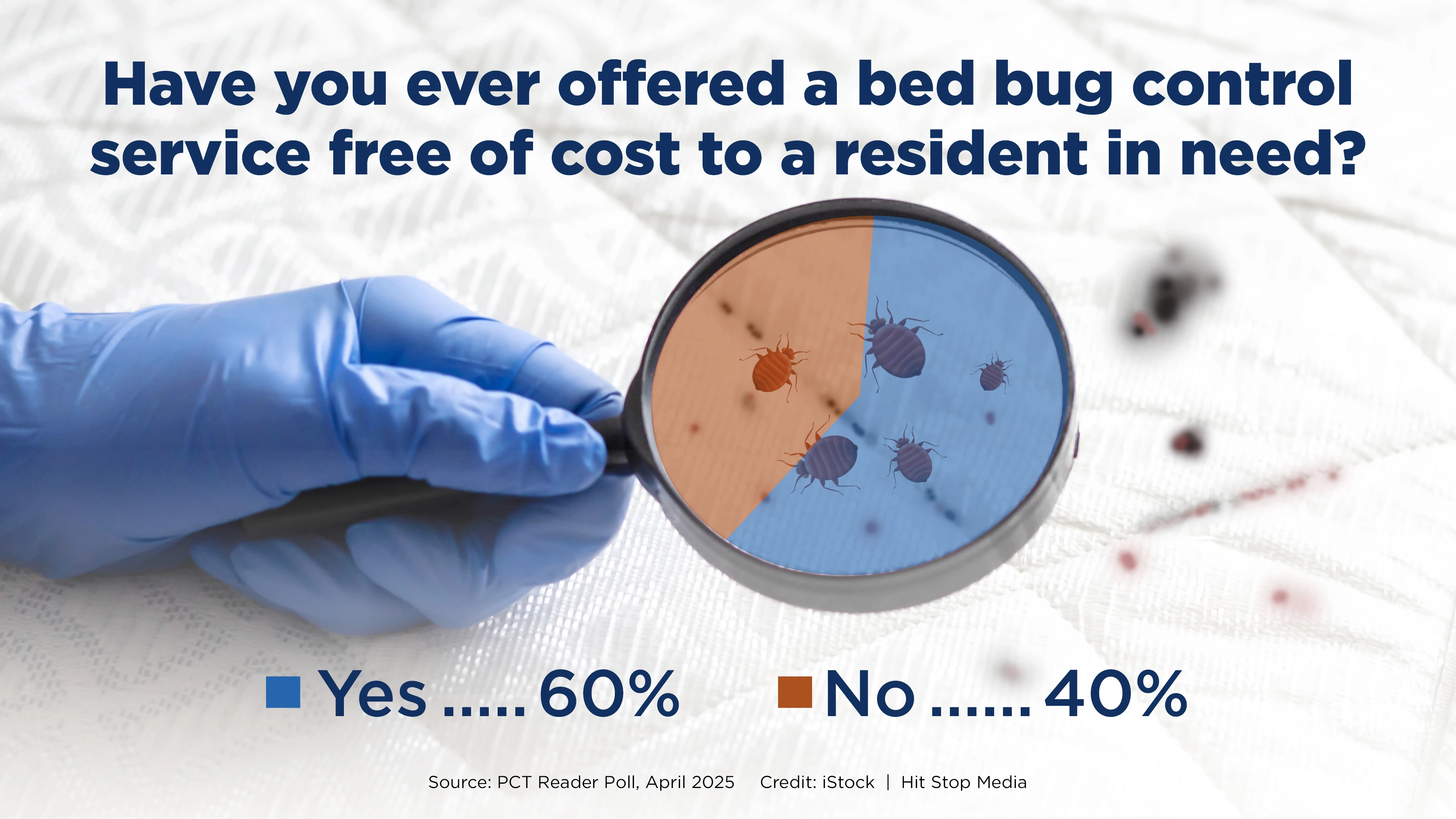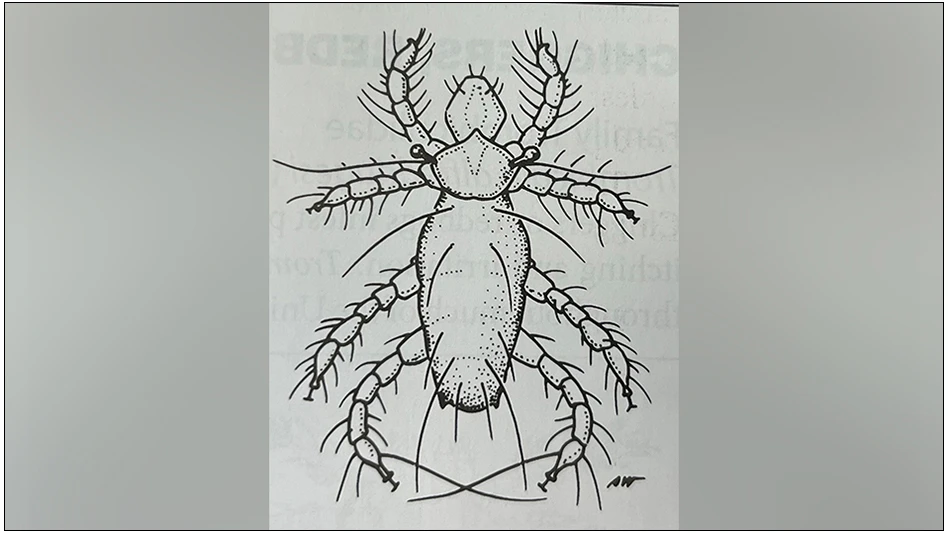This article appeared in the January 1999 issue of PCT magazine.
So now we are starting a new year. It’s hard to believe that this is the last year of the millennium. What will you do in 1999 to create direction for your company in the year 2000 and beyond? One thing is certain, the NPCA’s Industry Awareness Council (IAC) will certainly influence the work of the industry.
As a result, the industry will have to own up to its responsibilities as outlined by the IAC. This will affect all PCOs, not just those who have contributed finan-cially to the organization. And what about all the buyouts and new companies in the industry? They may open doors with a better business background, a better understanding of marketing through the web or a wider array of new products. How will that influence the in-dustry?
I feel that everyone has to assess their responsibility to the pest control industry. There is a need to support the industry that has put food on your table, helped send your children to college, and, in general, provided you with a pretty good life. As we develop the IAC we are positioning our industry as the profession — and the people — responsible for main-taining the pest-free lifestyle so many Americans have become accustomed to over the years, yet often take for granted.
OUR RESPONSIBILITIES. There are other influences on our responsibilities. I re-ceived an e-mail a few weeks ago that listed many things we should do as human beings. One thing cited was to respect yourself, respect others and be responsible for your actions. These are words to live by, but it’s often easier said than done. How does this relate to the pest control industry? The issue of responsibility will become increasingly important for PCOs to develop as we approach the new millennium.
Our pest control programs revolve around the use of Integrated Pest Management (IPM) techniques. No longer do PCOs use "whatever solves the problem." We do not hose down walls, crawl spaces and other areas in or around structures, even though labels may allow it! We have an undercurrent of guilt when something like that is done. Why? Because we have created an aura of "safeness" around what we do.
Many of our customers are able to afford our services. If you listen to presentations about the IAC, then you have heard that our target customer is the one with disposable income. But we cannot forget about the people who do not have the means for some of our services. How do we deal with them and provide quality services? What is our responsibility to them?
I have heard that by the year 2005 there could be a vaccine available against one of the most potent killers in our lifetime, malaria. Millions of people will be saved from this disease. The problem will be how do we feed these people, because most of the concerns about this disease are in Third World countries where rodents and insects destroy 50% or more of the food before it reaches the people who need it. There will have to be a coinciding awareness campaign to deal with this issue. Where will people look for the expertise? The pest control industry! And what will we tell them?
FOOD PRODUCTION FACILITIES. It is also obvious, at least to me, that a little sanitation program called Hazard Awareness Critical Control Point (HACCP) will have a great influence on the food production of the world. At present there has been too little done to inform PCOs of the incredible market available for controlling pests in food facilities. We are actually being assisted in our marketing to these people because of a government regulation that will tell them what they need to do to produce quality food. This means HACCP includes pest control. If you don’t think this is possible, think this way: We have discussed in the past "conducive conditions" for pest development, sanitation is a "natural step" in controlling flies, cockroaches, rats, etc., and there are "hot spots" within facilities where pests develop or can harbor. Well, start thinking of these as "critical control points" because that is what they are, and that’s what they will be. HACCP will affect all production of food, meat, poultry, retail food conglomerates and even the small retail market and corner vendor.
PCO ACCOUNTABILITY. In the future I feel that pest control operators will want, and will get, care, custody and control of an account. We have seen the beginnings of this scenario in the termite industry. We are using more baits more often. The PCO has control over the use of those stations around the building — the contract says so. To ensure that this system works the best that it can, the PCO needs the cooperation of the homeowner. That means, for example, that the homeowner doesn’t dump 3 inches of mulch on the stations. The technician should have control over what needs to be done at that structure.
Does this work in other areas of the industry? You bet! A program being initi-ated by pork producers demonstrates this. They want to set up a certification program for hog farms that certifies that the farm is rat-free. If this is true, then the farm is trichina-free as well. This means the hogs from that farm will bring premium prices and be of premium quality. Who will perform the rodent control? Certainly there are options here — training programs for farmers will emphasize how rodents can be kept from the facility — but I want to put a professional in charge. This means, if I were a hog farmer, I’d tell the PCO what I wanted and would cooperate in any way. For producers it can mean lots of bucks! Likewise, I am going to hold the PCO responsible for the care, custody and control of the facility as far as rats are concerned (and we can throw in cock-roaches, too). You are going to hold me responsible for the exclusion recom-mendations, sanitation etc., (it will be part of your contract). By golly this sounds like cooperation to me. Throw in a little edu-cation and communication and you have the true essence of IPM.
In order for you to do this work you will need quality individuals who want to work in hog facilities. You will need to respect the farmers and show that you will take responsibility for your actions. If you don’t, do not get involved in the work.
Life in this new atmosphere of pest control will be different. We will have to own up to some of our doubts and face some of the skeletons we have squirreled away for many years. Once this is done then we can face some very interesting developments with respect to our customers — especially the new customers that have purchased our services because we have said we will better their lives. Are we up to the challenge?
George Rambo is president of George Rambo Consulting Services, 703/709-6364.
WANT MORE?
Enter your email to receive our newsletters.

Explore the January 1999 Issue
Check out more from this issue and find your next story to read.
Latest from Pest Control Technology
- Target Specialty Products, MGK Partner for Mosquito Webinar
- Cockroach Control and Asthma
- FORSHAW Announces Julie Fogg as Core Account Manager in Georgia, Tennessee
- Envu Introduces Two New Innovations to its Pest Management Portfolio
- Gov. Brian Kemp Proclaimed April as Pest Control Month
- Los Angeles Ranks No. 1 on Terminix's Annual List of Top Mosquito Cities
- Kwik Kill Pest Control's Neerland on PWIPM Involvement, Second-Generation PCO
- NPMA Announces Unlimited Job Postings for Members





